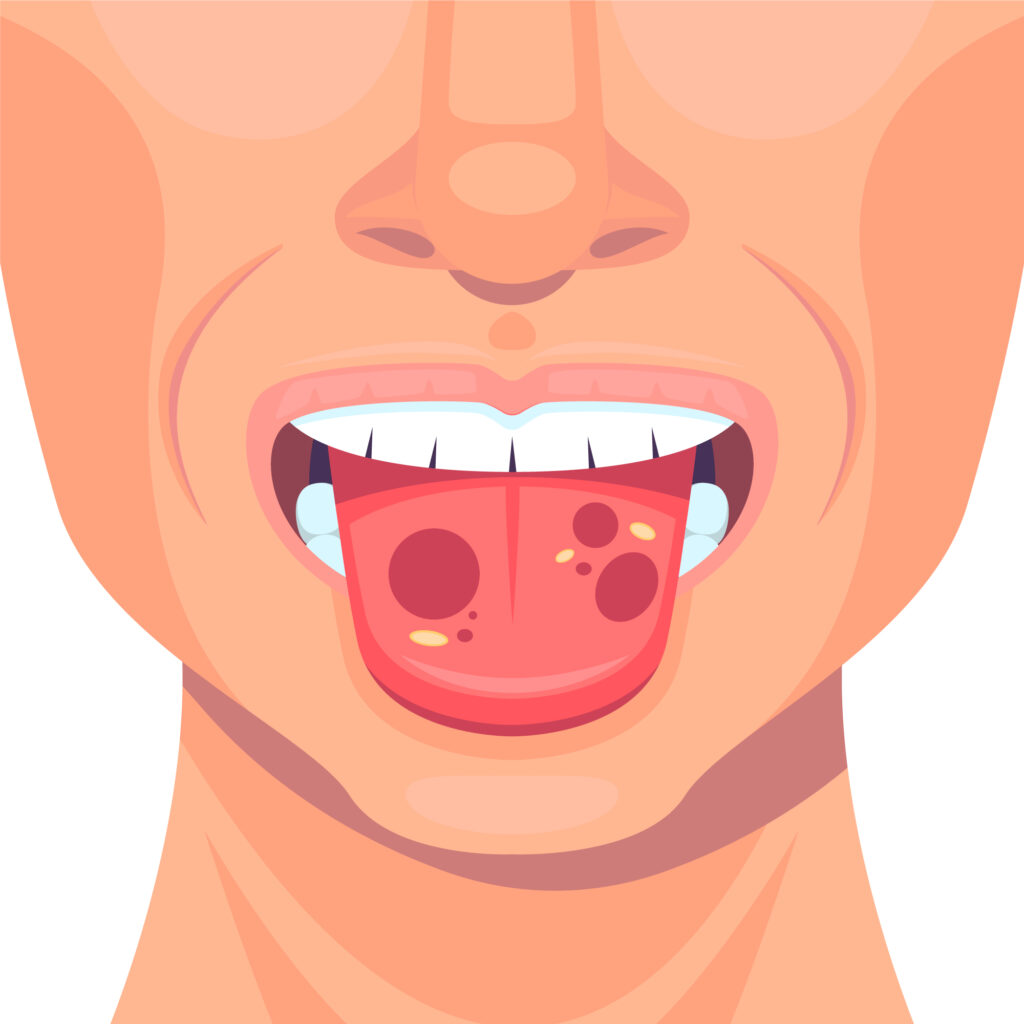
The mouth plays a crucial role in our daily lives — from eating and speaking to expressing emotions. So, when something abnormal appears, such as a lesion on the tongue or inside the mouth, it can be concerning. While many oral lesions are harmless and temporary, some may indicate underlying conditions, including infections, autoimmune disorders, or even oral cancer.
What Are Oral & Tongue Lesions?
Oral and tongue lesions are any abnormal sores, patches, ulcers, or bumps that develop on the lips, inner cheeks, tongue, gums, or roof of the mouth. These may be painful or painless, white, red, or discolored, and may appear suddenly or gradually over time.
Possible Causes of Oral & Tongue Lesions
Lesions in the mouth and on the tongue can arise due to various reasons, including:
- Trauma or Irritation: Biting the cheek or tongue, poorly fitting dentures, or rough edges on teeth can cause ulcers.
- Canker Sores (Aphthous Ulcers): Small, painful ulcers with a white or yellow center and red border, often triggered by stress, vitamin deficiency, or hormonal changes.
- Viral Infections: Herpes simplex virus can cause cold sores, while other viral infections may lead to oral ulcers.
- Fungal Infections: Oral thrush, caused by Candida overgrowth, leads to creamy white patches, especially in those with weakened immunity.
- Lichen Planus: A chronic inflammatory condition causing white, lacy patches or red, swollen tissues.
- Leukoplakia: Thick, white patches that can’t be scraped off—may be a response to chronic irritation and a potential precursor to cancer.
- Oral Cancer: Persistent, non-healing ulcers, red or white patches, or a lump in the mouth or tongue may indicate oral or tongue cancer.
Diagnosis & Treatment
Your doctor or dentist will examine the lesion and may suggest:
- Swabs or scrapings for fungal or viral infections
- Biopsy for suspicious or non-healing lesions
- Blood tests to rule out systemic diseases
Treatment depends on the cause:
- Topical gels or mouth rinses for pain relief
- Antiviral or antifungal medications for infections
- Corticosteroids for autoimmune causes like lichen planus
- Surgical removal or cancer therapies if malignancy is detected
Maintaining good oral hygiene and avoiding irritants like tobacco and spicy foods can help prevent recurrence.
When Should You See a Doctor?
Seek medical or dental advice if:
- A lesion lasts more than 2 weeks
- You have difficulty eating, speaking, or swallowing
- There’s bleeding, pain, or numbness
- The lesion grows in size or changes color
- You experience weight loss or persistent sore throat
Frequently Asked Questions
Are all mouth sores cancerous?
No, most are benign. However, any persistent lesion should be evaluated to rule out cancer.
Can stress cause oral lesions?
Yes. Stress is a known trigger for canker sores and other oral ulcers.
Is tongue cancer common?
It’s relatively rare but increasing, especially in those who use tobacco or alcohol excessively.
Final Thoughts
Oral and tongue lesions are common but should never be ignored. While many are harmless, some may signal more serious conditions. Early diagnosis can prevent complications, especially in cases of oral cancer. Always consult your doctor or dentist for proper evaluation.
